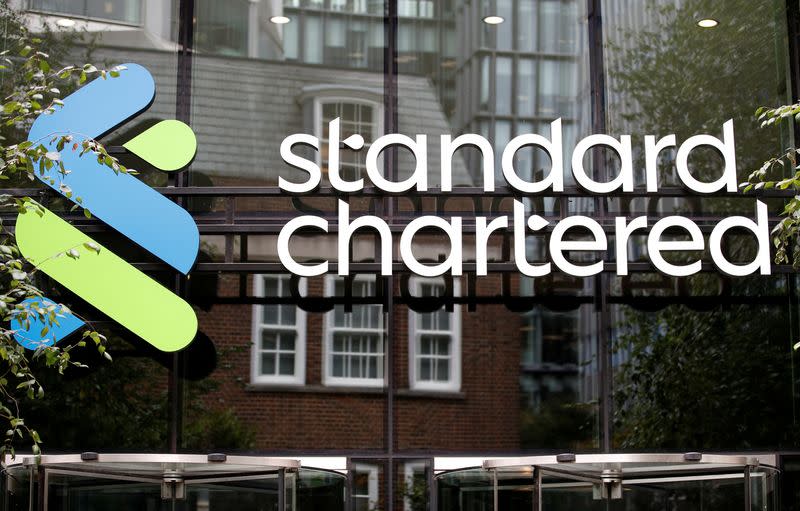StanChart to hire 100 staff for new China investment banking unit

By Selena Li
HONG KONG (Reuters) -Standard Chartered is hiring at least 100 staff in China as the British lender gears up to launch an investment banking unit in the country targeting niche bond deals, the chairman-designate of the new entity said.
The Beijing-based unit, which was awarded a licence in January, is being targeted for launch as early as the end of this year once it is cleared by local regulators, said John Tan, who is also StanChart's Asia head of financial markets.
"We are actively hiring people now and intend to have close to 100 staff on day one," he told Reuters on Monday, adding the team will further expand based on the growth of the business. China requires an investment bank to have no less than 10 qualified professionals to start operations.
StanChart's aggressive hiring plan comes as foreign entrants are breaking into or beefing up their onshore investment banking units after China allowed foreign financial companies in 2019 to wholly own their domestic businesses. The heightened competition is set to push up costs of talent acquisition for financial firms.
JPMorgan, Goldman Sachs and Morgan Stanley are already running fully controlled investment banking operations locally.
Asia-focused StanChart's hiring is expected to be across the investment banking unit's front, middle, and back-office functions as well as across seniorities, and mainly in Beijing. Tan did not say how much the lender will spend on the hiring.
The StanChart veteran, with 16 years of experience across Chinese mainland, Hong Kong and Taiwan markets, needs regulators' approval to officially assume the role of the unit's chairman.
The strategic focus of the new unit, Tan said, will be helping local companies to raise capital through exchange-traded fixed-income issuance.
It includes bonds and asset-backed securities, two niche markets worth close to 20 trillion yuan ($2.89 trillion) where the bank sees greater demand of global investors to allocate into over the long term with attractive risk and yield offerings.
Government bonds with a total worth of 125 trillion yuan dominate China's fixed income sector and are traded interbank, while exchange-traded bonds were only one-sixth the size of government debt as of the end of last year.
Tan expects the demand for China fixed income to prompt offshore investors in the coming years to add and diversify exposure from predominately government bonds to onshore exchange-traded bonds, but only selectively amid volatilities seen in the local debt market.
Economic headwinds and COVID-19 curbs dampened the debt capital raising at China's exchange market last year, with total new issuance down by half to 5.8 trillion yuan in 2022 from a year ago.
"Global investors have become more cautious in investing in China fixed income due to the volatilities seen over the last two years, particularly on the turmoil in real estate markets,” Tan said.
StanChart earned $1.16 billion last year from China, the lender's fourth largest market by operating income, after Hong Kong, Singapore and India, when banks faced slower growth under COVID-19 restrictions.
($1 = 6.9121 Chinese yuan renminbi)
(Reporting by Selena Li; Editing by Muralikumar Anantharaman)

 Yahoo Finance
Yahoo Finance 